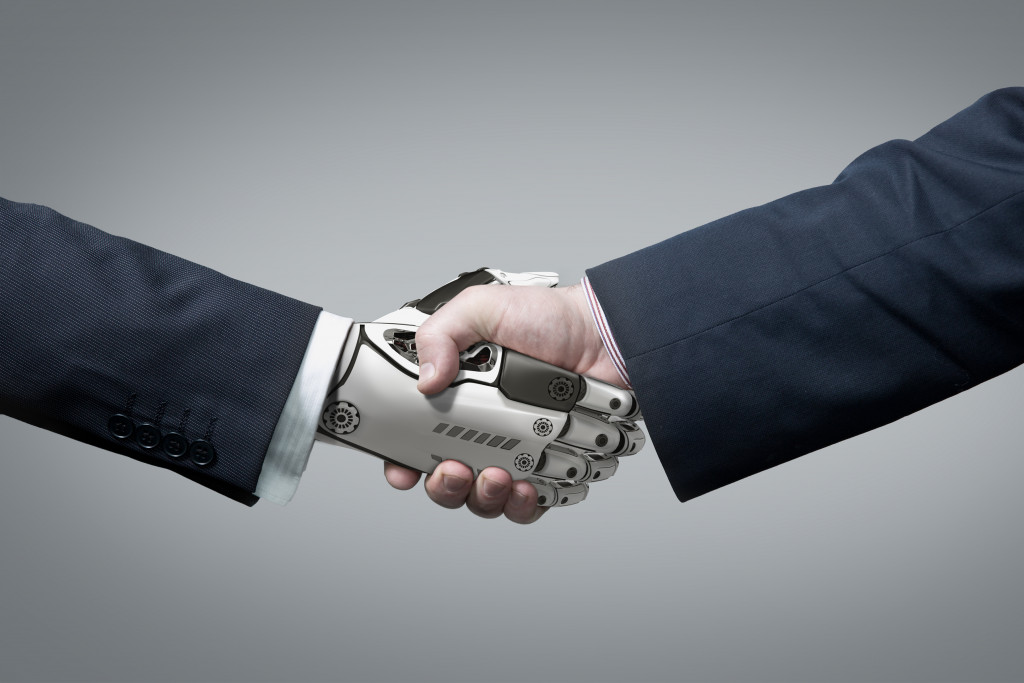- Automation and robotics revolutionize industrial manufacturing by automating repetitive tasks, improving precision, and increasing efficiency.
- IoT connects machines, systems, and devices to collect and exchange data for optimizing processes.
- Data analytics and AI leverage advanced algorithms to analyze vast data for improved decision-making.
- Additive manufacturing (3D printing) enables the creation of complex and customized parts with precision, speed, and cost-effectiveness.
- UL-approved panels ensure safety and quality in electrical systems by minimizing the risk of electrical hazards.
Industrial manufacturing has witnessed significant technological advancements, revolutionizing how products are produced. From automation and robotics to data analytics and artificial intelligence, these technologies have improved efficiency, productivity, and quality in the manufacturing sector. This guide explores five key technologies used in industrial manufacturing today, highlighting their benefits and applications. By embracing these technologies, businesses can gain a competitive edge, streamline operations, and achieve greater success in the dynamic manufacturing landscape.
1. Automation and Robotics
Automation and robotics play a pivotal role in industrial manufacturing, enabling businesses to automate repetitive tasks, improve precision, and enhance overall productivity. Industrial robots are designed to perform complex tasks accurately and quickly, reducing human error and increasing efficiency. They can be used for various applications, such as assembly, welding, material handling, and packaging. By implementing automation and robotics, businesses can optimize production processes, increase output, and reduce labor costs.
2. Internet of Things (IoT)

The Internet of Things (IoT) has transformed manufacturing by connecting devices, machines, and systems to collect and exchange data. IoT-enabled sensors and devices monitor and analyze real-time data, providing valuable insights into production processes and equipment performance. This data-driven approach helps manufacturers make informed decisions, predict maintenance needs, and optimize resource utilization.
Here are tips to utilize IoT in industrial manufacturing:
Improve Manufacturing Processes with IoT
Integrating IoT technology into industrial manufacturing processes can help streamline operations and optimize productivity. For example, IoT-enabled sensors can be placed in machines to monitor performance in real-time and identify any issues quickly. This data can then be used to adjust settings and improve efficiency. Additionally, by analyzing the data, manufacturers can gain insights into potential areas of improvement and develop strategies to ensure optimal performance.
Monitor Equipment Performance
IoT technology enables manufacturers to track equipment usage and performance in real-time. Sensors placed on machines can measure temperature, vibration levels, energy consumption, and other critical parameters for efficient operation. The collected data allows manufacturers to identify potential issues proactively and take corrective action before equipment failure. This helps minimize downtime and improves overall operational efficiency.
Automate Maintenance Scheduling
IoT technology can help automate maintenance scheduling for industrial machines, reducing time spent on manual processes. Manufacturers can determine when maintenance is necessary by analyzing sensor data and scheduling it accordingly. This eliminates the need to manually track maintenance schedules, ensuring all machines are properly serviced regularly.
Maximize Resource Utilization
Manufacturers can maximize resource utilization by leveraging IoT-enabled data collection and analytics throughout their production process. For example, they can analyze usage patterns to identify areas where resources are underutilized and adjust production accordingly. This helps ensure that resources are used efficiently and eliminates wasted time or materials. IoT can also monitor inventory levels in real-time, allowing manufacturers to adjust their supply chain operations when necessary quickly.
3. Data Analytics and Artificial Intelligence (AI)
Data analytics and AI have revolutionized industrial manufacturing by leveraging advanced algorithms to analyze vast amounts of data and derive actionable insights. Manufacturers can use data analytics to identify patterns, optimize production workflows, predict maintenance needs, and enhance operational efficiency. AI-powered technologies like machine learning and computer vision enable intelligent automation, quality control, and predictive maintenance. Manufacturers can make data-driven decisions, reduce costs, and improve product quality by harnessing data analytics and AI.
4. Additive Manufacturing (3D Printing)

Additive manufacturing, commonly known as 3D printing, has emerged as a game-changing technology in industrial manufacturing. It allows for the creation of complex and customized parts with precision, speed, and cost-effectiveness. 3D printing eliminates the need for traditional manufacturing processes like molding and machining, reducing material waste and lead times. It offers flexibility in design iterations, rapid prototyping, and on-demand production. Additive manufacturing finds applications in various industries, including aerospace, automotive, healthcare, and consumer goods.
5. UL-Approved Panels
UL (Underwriters Laboratories) is a globally recognized safety certification organization that ensures products, components, and systems meet stringent safety standards. These panels are essential in industrial manufacturing as they control and monitor machinery and equipment. UL-approved panel builders specialize in designing and manufacturing electrical control panels that comply with UL standards. Working with a reliable UL-approved panel builder ensures the highest safety and quality in electrical systems, minimizing the risk of electrical hazards and ensuring compliance with regulatory requirements.
To Wrap It Up
Advanced technologies in industrial manufacturing have transformed the way products are produced, enhancing efficiency, productivity, and quality. Automation and robotics streamline operations, while IoT enables connectivity and data-driven decision-making. Data analytics and AI provide valuable insights for optimization, and additive manufacturing revolutionizes the production of complex parts. Collaborating with UL-approved panel builders ensures electrical safety and compliance. By embracing these technologies, businesses can stay competitive, adapt to evolving market demands, and drive innovation in the industrial manufacturing sector.

